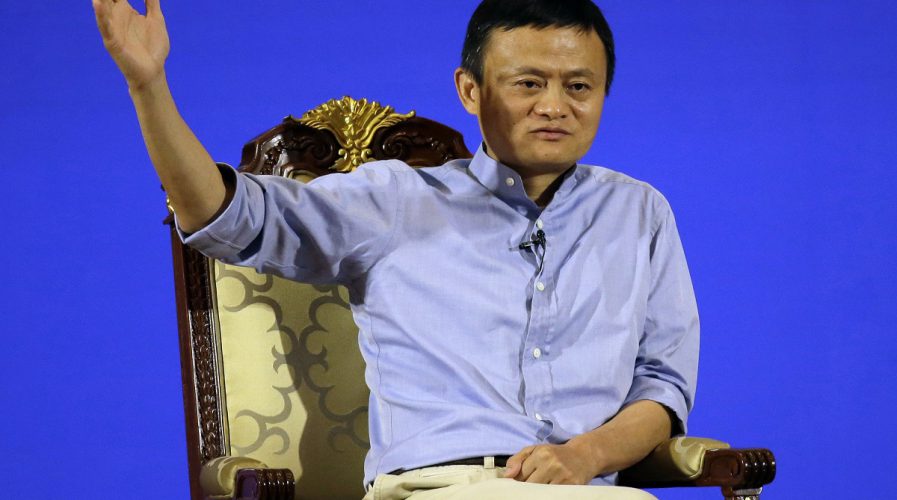
From its humble beginnings in founder Jack Ma’s Hangzhou apartment, Alibaba has evolved into what is today the world’s largest e-commerce empire. Source: AP
What e-commerce marketers can learn from China’s Alibaba
CHINA’S e-commerce market is estimated to grow to over US$1 trillion dollars by 2018, with the potential of becoming even bigger than the combined markets of the US, Britain, Japan, Germany and France. Driving this growth is e-commerce juggernaut Alibaba, with services offering today’s time-starved consumer total emancipation from the nightmares of traditional shopping.
The Alibaba ecosystem is massive, comprising the company’s core e-commerce platforms (Tmall, Taobao, Ali Express and more), digital media and entertainment divisions (Youku, Alibaba Music, Weibo etc), local services, payment and financial services (Alipay), logistics, marketing services and data management, and cloud computing.
In a nutshell, Alibaba “epitomizes convenience”, with a marketplace, B2B and B2C platforms, APP, payment service, messenger, ad placement service, logistics network, financial services and mobile terminal services all under one “roof”, as Global Digital Marketing (GDM) Group COO Alice Melnik says in a recent statement.
SEE ALSO: Jack Ma made a chilling prediction about the impact of the Internet on future economies
It’s no wonder, therefore, why the firm in such a short time came to dominate the e-commerce sphere. From its humble beginnings in founder Jack Ma’s Hangzhou apartment, the company has evolved and grown into what is today the world’s largest e-commerce empire.
“Its success can be attributed to a perfect storm of economic and social factors, and to its vendors getting it right,” Melnik says.
Other bit players struggling to find their feet in today’s increasingly saturated e-commerce market would do well to take a leaf from Alibaba’s marketing playbook.
Learning from the Alibaba example
A key factor of Alibaba’s success is its unique degree of centralization.
Unlike in countries like the US where all major and minor retailers operate their e-commerce sites independently, in China, most retailers big or small operate as storefronts on Alibaba’s Tmall.com (business-to-consumer site). In fact, over 75 percent of e-commerce in China is transacted through Alibaba’s Tmall and Taobao sites.

Alibaba’s main e-commerce site Taobao is infamous for hosting merchants that sell counterfeit products. Source: AP
In the US and other major markets, consumers shopping at different e-commerce sites have to, naturally, use a variety of different accounts along with separate checkout procedures. In China, however, consumers can use a single Tmall account regardless of what store they are buying from. Alibaba allows customers to use just one account and the same checkout for shopping at thousands of different retailers, enabling an easy and personalized shopping experience for everyone – exactly what today’s shoppers are looking for.
Perhaps another reason for Alibaba’s meteoric rise to popularity is in how the company has revolutionized the online shopping experience, turning it into the go-to activity for entertainment or a “want”, rather than one driven by necessity, or a “need”.
SEE ALSO: Digital assistant battle heats up with Alibaba’s Taobao-linked offering
“Alibaba has made e-commerce an entertainment sport, they have turned the act of purchasing into a sport,” says Mindshare China chief digital officer Kenneth Tan, as reported by The Drum.
This strategy is best demonstrated by its 11.11 Singles Day shopping extravaganza. The event falls on Nov 11, just between Chinese National Day and Christmas. Although most customers would typically be avoiding shopping during this period, Taobao developed a campaign encouraging consumption, turning this day into an actual shopping festival.

A Chinese woman in her livestreaming ‘studio’. Source:: Hubbeibbs.net
Various brands offer discounts and even launch new products. The event creates a lot of buzz, with celebrity appearances, streaming activity and hours of TV activity where consumers could win money and engage with brands.
SEE ALSO: China to ban three most popular live-streaming platforms
“It was one night of pure entertainment,” says Tan.
The annual festival has exploded into a record-breaking event, with figures from last year reporting sales of a staggering US$17.4 billion.
Mobile matters
According to Melnik, the number of people in China using their phones for payments more than doubled last year. By 2020, almost half of all smartphone users in the People’s Republic will be making mobile payments.
Melnik says this is in large part due to the Chinese aversion for credit cards; as the mobile industry expanded in China, customers seamlessly graduated from using cash exclusively to making payments via mobile platforms.
Enter Alipay, an Alibaba offering that allows consumers to not only buy products online, but also shop in-store, pay bills, book plane tickets and more. Today, Alipay accounts for more than half of all online payments in China. This mobile payment service has become so popular and versatile that in China, many people do not carry cash.

QR code-based payment platforms are quickly becoming central to life in China. Alibaba’s Alipay platform is one of two of the most popular payments platforms. Source: Shutterstock
Alipay also provides another way for the Alibaba to connect with its consumers. It collects data about what and how consumers spend money on whilst also promoting deals and specials to consumers… both a bonus to the consumer and the company.
“Much like the supermarkets of old, they have plotted the routes so they know where you have the highest propensity to spend. Alipay will ping you with specials, they know what you buy, where you live, how much you are paying for your gas, they will give you offers within the payment platform that suit you to get you to buy,” says Tan.
SEE ALSO: China: Consortium releases paper on QR code standards
Alibaba is also using Alipay to propel it into other markets; in the last 12 months, it has launched into countries across Asia Pacific, Europe, Canada, South America and the United States.
“Alibaba is a very powerful platform, not just in China. In the future, it will be a global data platform that you can leverage all around the world. I think that is the big purpose of Alibaba,” says Major Lin, managing partner and chief digital officer at OMD China.
The strengths outlined above are just a small portion of what makes Alibaba the powerful platform it is today, and there are many lessons that other e-commerce marketers can take from this model.
As Melnik says: “To capitalize on the e-commerce boom, you must be prepared to compete with an exploding marketplace of sellers. You need to keep it fresh and try new things. Shopping is fun, right? Your marketing should be, too.”
READ MORE
- Safer Automation: How Sophic and Firmus Succeeded in Malaysia with MDEC’s Support
- Privilege granted, not gained: Intelligent authorization for enhanced infrastructure productivity
- Low-Code produces the Proof-of-Possibilities
- New Wearables Enable Staff to Work Faster and Safer
- Experts weigh in on Oracle’s departure from adland
